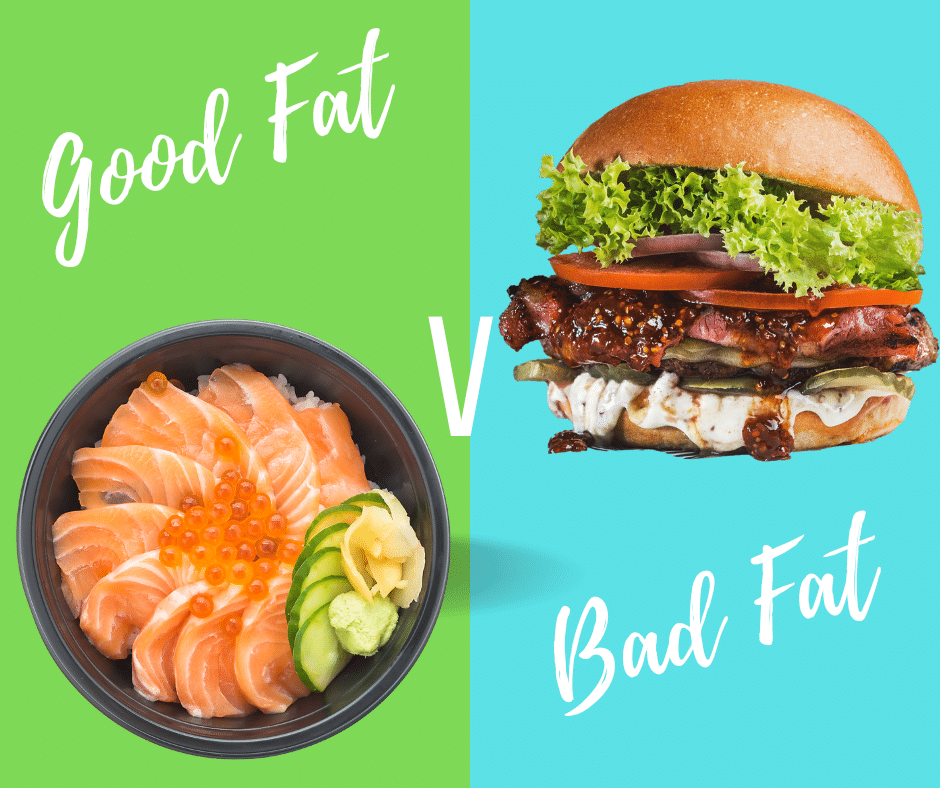Unraveling the Fat Divide: ‘Good’ Fat v’s ‘Bad’ Fat
In the world of nutrition, fats stir debate and confusion. Yet, not all fats are the same – they fall into two categories: ‘good’ fat v’s ‘bad’ fat. It’s crucial to understand these distinctions for healthier choices.
Good Fat: Unsaturated Powerhouses
Good fats, often called unsaturated fats, are vital for health. Avocados, nuts, seeds, and fatty fish like salmon and mackerel are rich sources. These fats are defined by their chemical structure with double bonds between carbon atoms. Monounsaturated fats have one double bond, while polyunsaturated fats have more. They lower bad cholesterol, reducing heart disease risk.
The Notorious Bad Fat
Bad fats, saturated and trans fats, bring negative health consequences. Saturated fats in red meat, butter, and full-fat dairy raise LDL cholesterol, clogging arteries and boosting heart disease risk. Trans fats, found in processed and fried foods, harm doubly by raising LDL while lowering beneficial HDL cholesterol. For more info on how fats affect your heart visit The Heart Foundation website.
Fats Beyond the Heart
Good fats, especially omega-3s in fatty fish, flaxseeds, and walnuts, have anti-inflammatory properties and boost brain health, reducing neurodegenerative disease risks. They’re crucial for absorbing fat-soluble vitamins A, D, E, and K. Click here for one of my favourite Fish Skewer Recipes.
The Dark Side of Bad Fats
Excessive bad fats link to obesity, type 2 diabetes, and certain cancers. It’s vital to limit saturated and trans fat intake while prioritizing good fats.
Your Body’s Response to ‘Good’ Fat V’s Bad Fat
After ingestion, the body’s response differs based on fat type. Good fats, once digested, support vital functions, nourishing cells and aiding nutrient absorption. In contrast, bad fats trigger a chain reaction leading to arterial plaque, increasing heart disease risk.
Where Calories Settle
Fat type influences where excess calories are stored. Saturated and trans fats cause visceral fat accumulation, which poses health risks like insulin resistance, diabetes, and heart disease. Good fats, especially those with omega-3s, favor subcutaneous fat storage, considered less harmful.
Simply Put
Opt for unsaturated fats like avocados, nuts, and fatty fish for heart health and overall well-being. Whilst reducing saturated and trans fats from processed and fatty meats. Understanding these differences empowers you to make dietary choices to promote long-term health.


